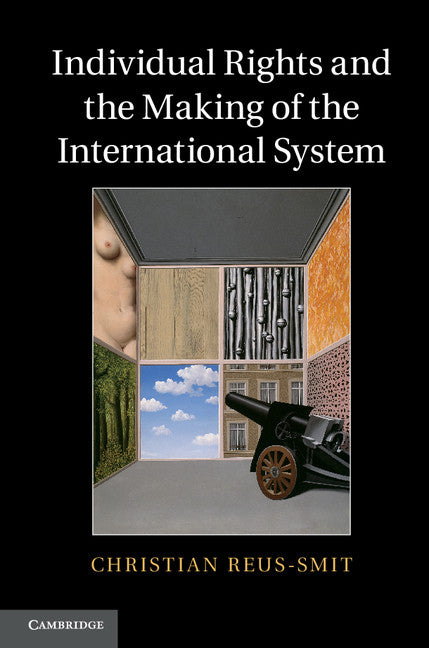Freshly Printed - allow 8 days lead
Couldn't load pickup availability
Individual Rights and the Making of the International System
Shows the central role struggles over individual rights played in the development of today's global system of sovereign states.
Christian Reus-Smit (Author)
9780521674485, Cambridge University Press
Paperback, published 29 August 2013
244 pages
22.6 x 15.2 x 1.2 cm, 0.42 kg
'Scholars have offered a variety of explanations for the rise and triumph of the nation-state. Reus-Smit argues that most accounts fail to explain why people wanted independent statehood in the first place. His answer is human rights.' G. John Ikenberry, Foreign Affairs
We live today in the first global system of sovereign states in history, encompassing all of the world's polities, peoples, religions and civilizations. Christian Reus-Smit presents a new account of how this system came to be, one in which struggles for individual rights play a central role. The international system expanded from its original European core in five great waves, each involving the fragmentation of one or more empires into a host of successor sovereign states. In the most important, associated with the Westphalian settlement, the independence of Latin America, and post-1945 decolonization, the mobilization of new ideas about individual rights challenged imperial legitimacy, and when empires failed to recognize these new rights, subject peoples sought sovereign independence. Combining theoretical innovation with detailed historical case studies, this book advances a new understanding of human rights and world politics, with individual rights deeply implicated in the making of the global sovereign order.
Introduction
1. The expansion of the international system
2. Struggles for individual rights
3. The Westphalian settlement
4. The independence of Spanish America
5. Post-1945 decolonization
Conclusion.
Subject Areas: International relations [JPS], Political science & theory [JPA], Social & political philosophy [HPS], General & world history [HBG]


